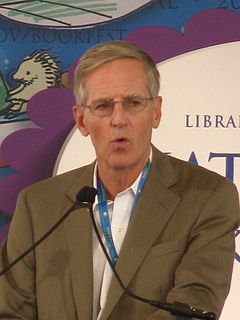A Quote by Toyo Ito
The dreams of the 1960s began to disappear in the 1970s. The economy collapsed, and so did the optimism of the Metabolists.
Related Quotes
As Paretsky detailed in her short memoir Writing in an Age of Silence (2007), early optimism buoyed by the civil rights movement of the 1960s and early 1970s has, in her view, all but crumbled in the face of a bombardment of sadism and misogyny, the withholding of civil liberties, and the nation's move from proud speech into near-deafening silence.
I don't think the Republicans would appreciate the comparison, but they're exactly like the Labor Party in England in the 1970s. They're letting their extremists take them straight down. The same thing is going to happen - they had to disappear for a while and when they reinvented themselves they did it with moderates, they did it with Tony Blair.
What we did in the 1960s and early 1970s was raise the consciousness of white America that this government has a responsibility to Indian people. That there are treaties; that textbooks in every school in America have a responsibility to tell the truth. An awareness reached across America that if Native American people had to resort to arms at Wounded Knee, there must really be something wrong. And Americans realized that native people are still here, that they have a moral standing, a legal standing. From that, our own people began to sense the pride.
Americans are right to believe the American Dream is fading. But that dream only became a possibility for white men as a result of the labor struggles and reforms of the New Deal, and it began to extend to minorities and women only after the civil rights and women's movements of the 1960s and 1970s.
People believe that companies have always had strategies, dating back at least to likes of Henry Ford or Andrew Carnegie, maybe to the contractors who built the Pyramids. As it turns out, it was only in the 1960s and 1970s that a new breed of "business intellectuals" began to develop the intellectual framework that allowed companies to look at the three "C's" of any good strategy - namely their costs, customers, and competitors - in an integrated way.







































